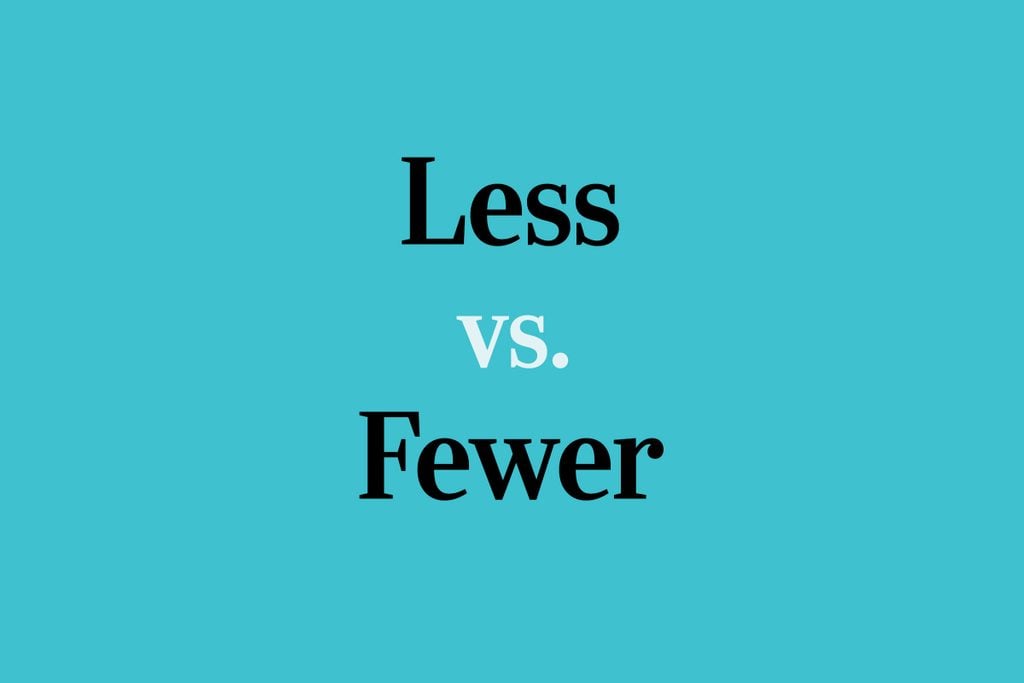This Is the Real Difference Between “Less” and “Fewer”
Updated: Nov. 03, 2022

They're similar, but they're not interchangeable—here's a simple rule to help you remember when to use them.
You probably see it every time you make a grocery run: the Express lane, with its sign inviting shoppers with “ten items or less.” Despite how widespread it is, though, this phrase is actually grammatically incorrect—it should say “ten items or fewer.” If this is news to you, you’re not alone—the difference between “less” and “fewer” is easily one of the most confusing rules in the grammar world.
“Less” vs. “fewer”: When to use each
The difficulty comes from the fact that, in essence, they mean the same thing; they refer to a smaller quantity and are opposites of “more.” But despite that, they’re not interchangeable. Here’s the difference between “less” and “fewer.” “Fewer” describes items that are countable, while “less” describes something that is not. For instance, you would correctly say, “He drank less water than I did on the hike,” because “water” isn’t something that you can count. However, you would correctly use “fewer” in the sentence “He brought fewer water bottles than I did,” because water bottles are something you can count. Similarly, you would say “She has less money than I do” but also “She has fewer dollar bills in her purse than I do.” “I ate less pizza”; “I ate fewer slices of pizza.” “She saw less wildlife on her vacation”; “She saw fewer animals.”
The exceptions
But, because English likes to make things difficult, there are exceptions. Consider if you’re following the word with “than,” as in “less than” or “fewer than,” so you’re likely discussing a specific quantity. Ordinarily, you’d use “fewer” here, since specific quantities are, by nature, countable. “I saw fewer than 50 people at the park.” “There were fewer than ten Doritos in the bag when she gave it back to me.”
The exception comes into play when the countable noun refers to an amount of time, distance, or money. Then, you’ll want to use “less than,” not “fewer than.” For instance, you would say, “The concert lasted less than two hours,” not “…fewer than two hours,” even though “hours” is technically a countable noun. This is because this sentence refers to “two hours” as a lump sum of time, not as individual hours. For other similar examples, “The concert tickets cost less than 50 dollars” and “The venue was less than 20 miles away” are correct as well. For clarification of another pair of similar, but not interchangeable, words, find out the difference between “due to” and “because of.”
A trick to help
It can be tricky to keep these two straight, especially since it’s pretty common to see “less” used when it should technically be “fewer.” If you’re having a tough time figuring out which to use, Spellzone offers a helpful tip. Barring the above exception, use “fewer” when you mean “not as many,” and “less” when you mean “not as much.” Now that you know this difference, check out more words and phrases you’ve probably been using wrong.
Sources:
- GrammarBook.com: “Fewer vs. Less”
- Writing Explained: “Fewer vs. Less: What’s the Difference?”
- Spellzone: “Commonly Confused Words: Less vs. Fewer”
